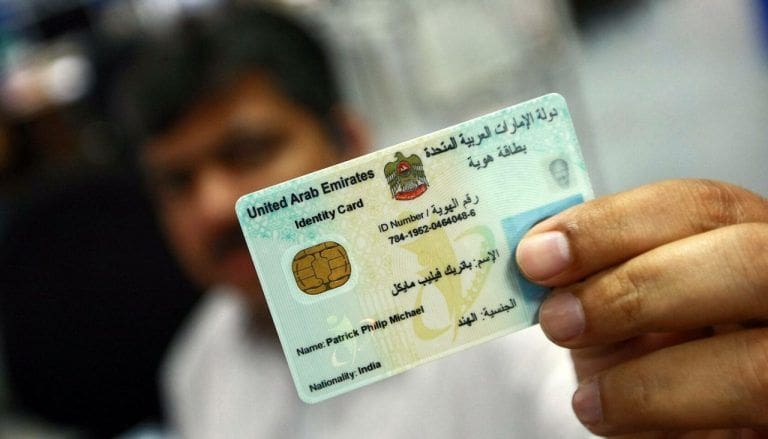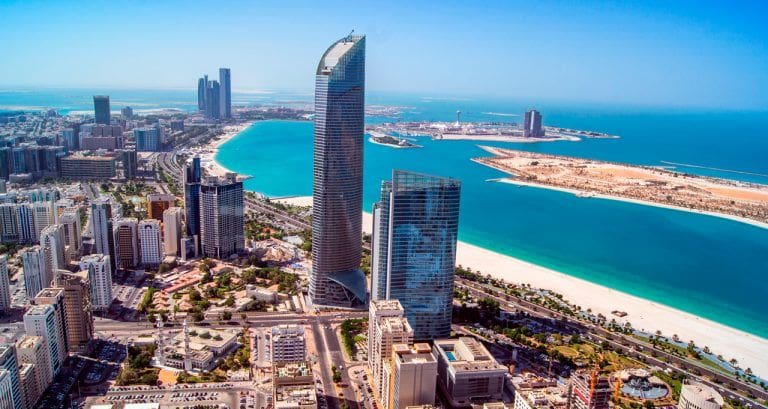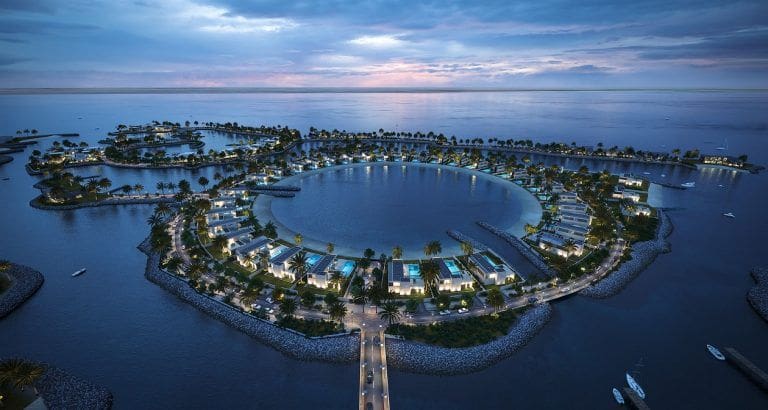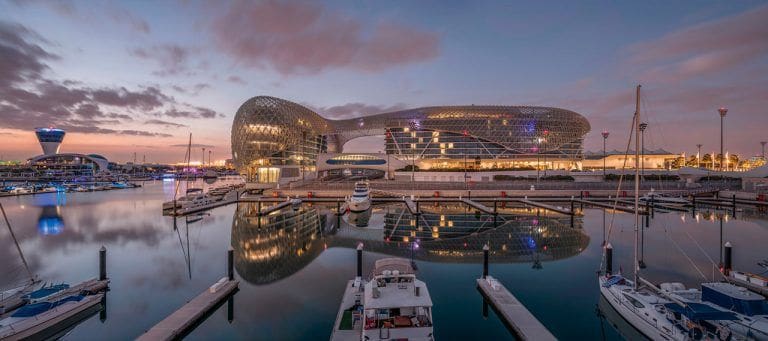How to Buy Property in Abu Dhabi: Full Step-by-Step Guide
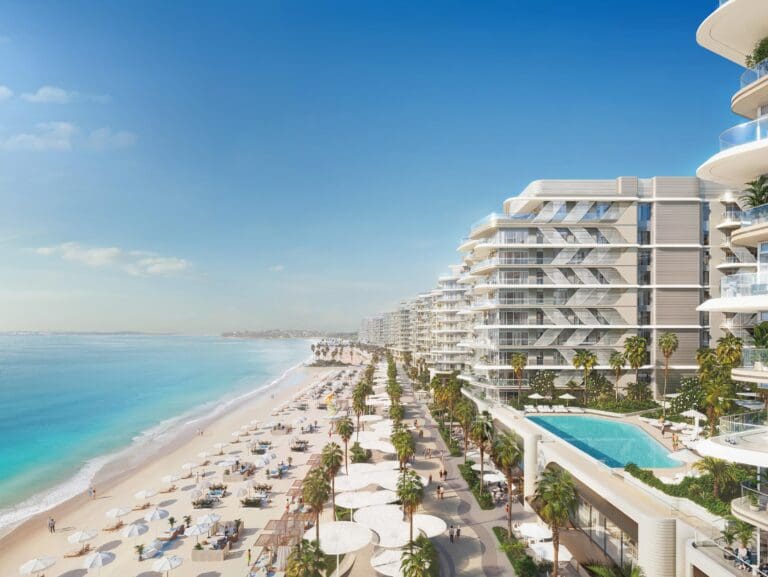
Starting Price
Payment Plan
New Project by Aldar Properties on Fahid Island — Fahid Beach Residences
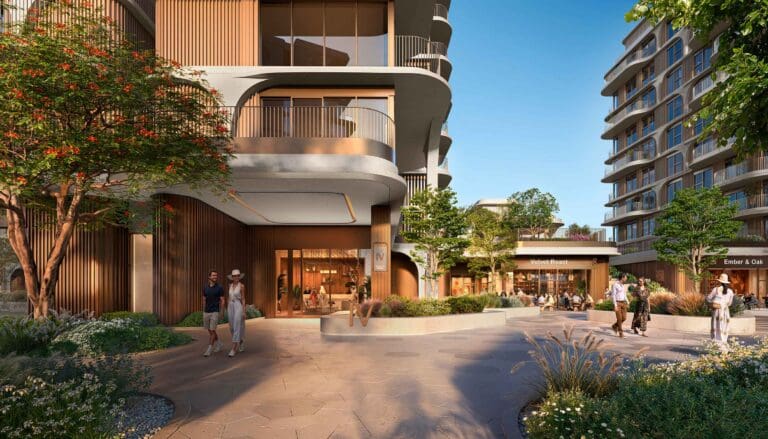
Starting price
Payment Plan
The Beach House Fahid — Wellness Living by the Sea
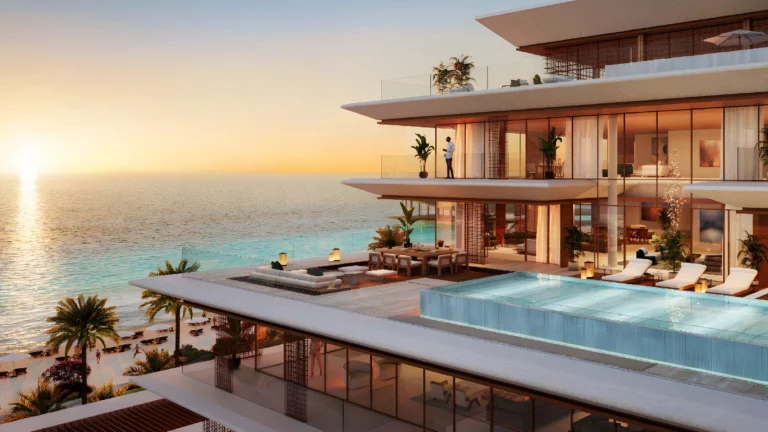
Starting price
Payment Plan
Nobu Residences Abu Dhabi — Branded Residences on Saadiyat Island
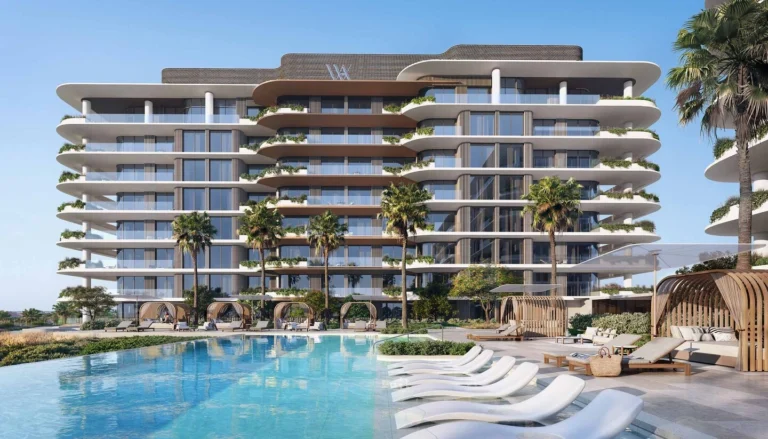
Starting Price
Payment Plan
Waldorf Astoria Residences — Branded & Fully Furnished Apartments on Yas Island
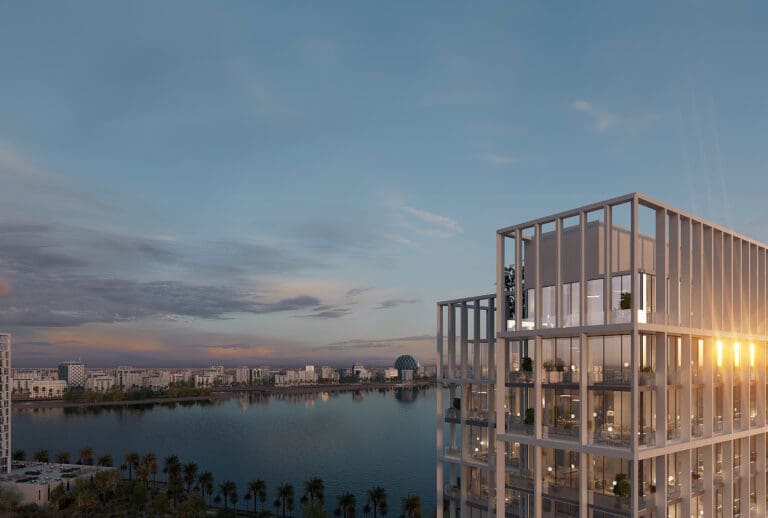
Starting Price
Payment Plan
Opula Residences — Waterfront Residences in Yas Bay
Abu Dhabi is becoming a popular destination for real estate buyers after it opened its market to foreign investors. Recent improvements in transparency and security, particularly since 2019 and continuing into 2024, have made the process easier. This guide will walk you through the entire process of buying property in Abu Dhabi in 2025, so you can make informed decisions.
Key Takeaways
- Ownership Options: UAE and GCC nationals enjoy freehold rights everywhere, while foreigners can buy freehold in designated zones or opt for leaseholds, usufruct, or Masataha contracts elsewhere.
- Budgeting: Down payment (typically 20-25%, though it can vary from 15-50% depending on nationality, property type, and financing terms), 2% registration fees, agency fees, and AED 10-25 per sq ft annual service charges.
- Financing: Choose cash, UAE bank mortgages (up to 75-80% for residents, 50-65% for non-residents), or developer payment plans.
- Top Areas to Invest: Saadiyat Island offers luxury, Yas Island suits families, and Al Reem Island promises high rental yields.
- Step-by-Step Clarity: Research properties, make an offer, secure financing, conduct due diligence, pay, and register at Abu Dhabi Municipality for a smooth purchase.
- Visa Options: Invest AED 2 million+ for a 10-year Golden Visa.
- No Property Taxes: Enjoy no annual taxes, but expect one-time fees totaling AED 100,000-150,000 on a AED 2 million property, depending on financing options and additional costs.
Types of Property Ownership in Abu Dhabi
Abu Dhabi offers several property ownership types:
- Freehold ownership: Available to UAE and GCC nationals in all areas, and to foreign nationals in designated investment zones. You have complete ownership rights over the land and the property when you possess it freehold.
- Leasehold ownership: Typically ranges from 50 to 99 years. This does not give you land ownership, but it does give you the right to use the property for the time given.
- Usufruct: 99-year use rights without altering the property.
- Masataha: 50-year renewable rights, allowing construction or alteration.
| Aspect | Freehold | Leasehold | Usufruct | Masataha |
| Ownership | Full ownership of property and land | Ownership of property for a fixed period, not land | Right to use property and facilities for 99 years, no alteration | Right to use, construct, or alter for 50 years (renewable) |
| Duration | Indefinite ownership | Typically 50 to 99 years | 99 years | 50 years (renewable for another 50 years) |
| Resale | Easier to resale and transfer ownership | Can be resold, but lease term decreases | Can be resold, terms may affect value | Can be resold, terms may affect value |
| Renovation | Full rights to renovate and alter | May have restrictions based on lease terms | No alteration rights | Allows construction or alteration |
| Suitability | Long-term investment and residency | Shorter-term plans or temporary stays | Long-term use without development rights | Long-term with development rights |
Abu Dhabi has included more investment zones where foreigners can buy freehold property since 2019. These zones now include the areas on Saadiyat Island, Yas Island, and Al Reem Island.
Who Can Buy Property in Abu Dhabi?
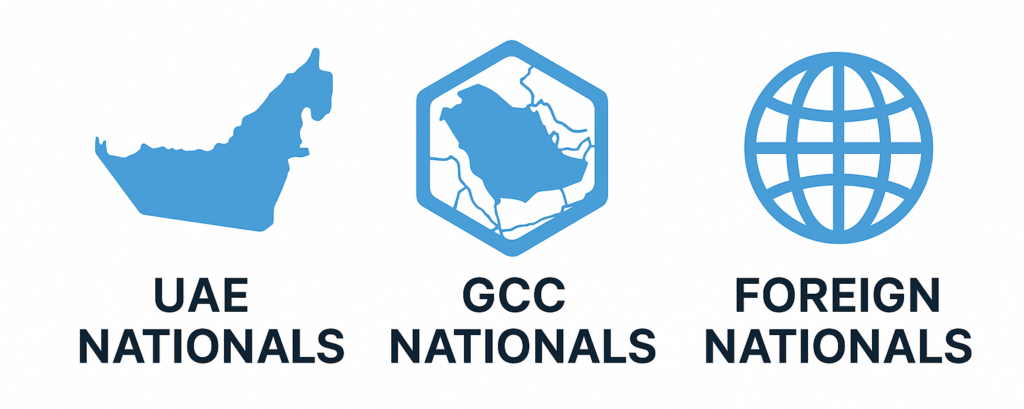
- UAE nationals: Can purchase property anywhere in Abu Dhabi.
- GCC nationals: Can purchase property anywhere in Abu Dhabi, like UAE nationals.
- Foreign nationals: Can purchase property in designated investment zones.
Foreign buyers need to be aware that ownership rights vary by nationality and location. Investment zones to buy freehold property include:
- Yas Island
- Saadiyat Island
- Al Reem Island
- Al Maryah Island
- Masdar City
- Al Raha Beach
Setting Your Budget and Financing Options
Before starting your property search, set a clear budget considering:
- Purchase price
- Down payment (typically 20-25%, though it can vary from 15-50% depending on nationality, property type, and financing terms)
- Registration fees
- Agency fees
- Mortgage costs
- Maintenance fees
Financing Options:
- Cash purchase: Simplest option but requires significant capital.
- Mortgage from UAE banks: Available to residents and non-residents with different terms.
- Developer payment plans: Many developers offer attractive paym
ent plans, sometimes extending beyond handover.

Most banks offer up to 75-80% financing for residents and 50–65% financing for non-residents. Loan terms range from 5 to 25 years, with repayment typically required by age 65 for expatriates or 70 for UAE nationals.
Popular Areas to Invest in Abu Dhabi
Luxury Living:
- Saadiyat Island: Home to cultural landmarks like Louvre Abu Dhabi with beachfront villas and luxury apartments.
- Al Raha Beach: Waterfront community with high-end properties and excellent amenities.
Family-Friendly Communities:
- Yas Island: Home to the Formula 1 Yas Marina Circuit, theme parks, and shopping facilities.
- Khalifa City: Established residential area offering villas and townhouses at reasonable prices.
Investment Hotspots:
- Al Reem Island: Financial district with high rental yields.
- Masdar City: Sustainable city with growing business opportunities.
- Al Maryah Island: Financial center that includes Abu Dhabi Global Market.
Step-by-Step Buying Process

1. Research and Property Selection
- Identify your needs (location, size, purpose)
- Research market prices and trends
- Visit multiple properties and compare options
- Verify developer reputation if buying off-plan
2. Making an Offer
- Make an offer to the seller personally or through your agent.
- Negotiate terms and price
- Once all the terms are agreed, sign a Memorandum of Understanding (MOU).
3. Secure Financing
- Apply for mortgage pre-approval if you need funds
- Compare rates from different banks
- Prepare necessary documents (passport, visa, income proof)
4. Due Diligence
- Verify the title deed for the property
- Check if there are any unpaid service fees
- Make sure there are no disputes related to the property
- Review the developer’s track record for off-plan purchases
5. Payment and Documentation
- Pay the agreed deposit (typically 10%)
- Sign the Sales & Purchase Agreement (SPA)
- Arrange remaining payment or mortgage disbursement
- Obtain No Objection Certificate (NOC) from developer
6. Property Registration
- Visit the Abu Dhabi Municipality or Real Estate Registration Department
- Pay registration fees
- Complete the transfer process
- Receive the new title deed
Understanding Fees and Additional Costs
When budgeting for your property purchase, take these expenses into consideration:
- Registration fee: 2% of the property value
- Real estate agency fee: 2% (typically)
- Mortgage registration fee: 0.25% of the loan amount
- Valuation fee: AED 2,500-3,500
- Transfer fee: AED 1,000
- Admin fees: Vary by developer and property
- Service charges: Annual fees for maintenance (AED 10-25 per sq ft)
Expect to pay an extra 100,000 to 150,000 AED on top of the buying price for a property worth 2 million AED, depending on financing options and additional costs.
Property Registration Process
The Real Estate Registration Department of the Department of Municipalities and Transport is in charge of registering property in Abu Dhabi. The process involves:

- Initial application: Submit your application with required documents
- Document verification: Officials verify all submitted documents
- Fee payment: Pay the applicable registration fees
- Title deed issuance: Receive your official title deed
Required documents include:
- Original passports of buyer and seller
- Emirates ID (for residents)
- Sale agreement
- Property layout
- NOC from developer
- Mortgage letter (if applicable)
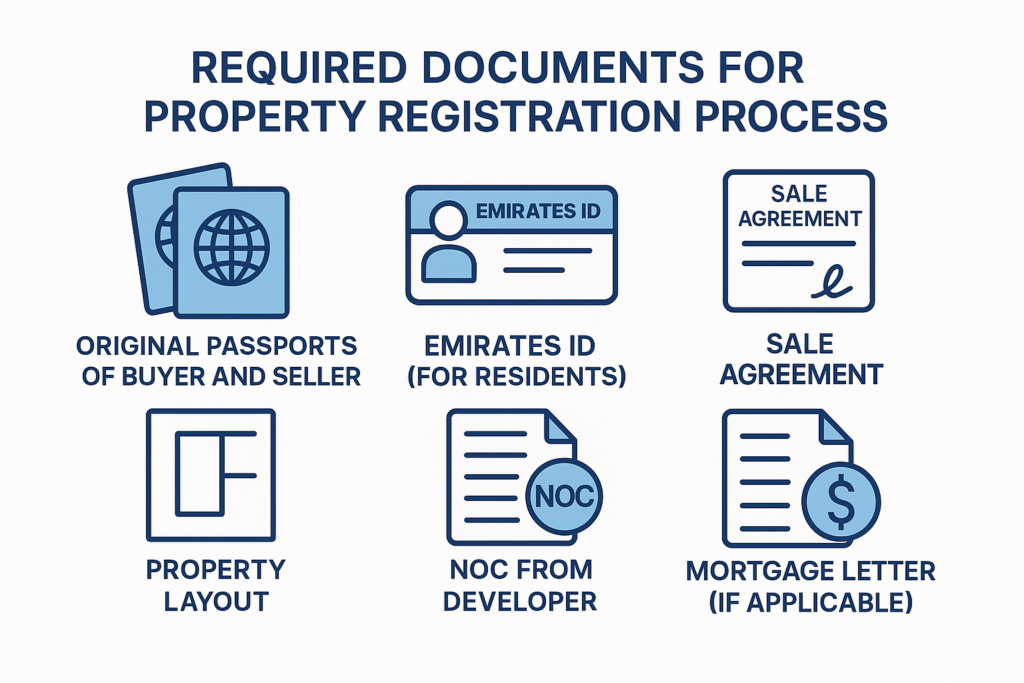
Visa Options for Property Owners
Property ownership in Abu Dhabi can provide visa opportunities:
- Golden Visa: Available for property investments of AED 2 million or more, offering 10-year residency.
- Retirement Visa: For property owners aged 55+ with minimum investment of AED 2 million.
Each type of visa has its own requirements regarding property value, investment structure, and personal financial status.
Ready to Start Your Property Journey in Abu Dhabi?
Contact Us for Expert Guidance!
FAQs
Yes, foreigners can own property in designated investment zones in Abu Dhabi.
There is no legal minimum, but properties in investment zones typically start from AED 500,000 for apartments, with most quality units starting from AED 1 million.
No, non-residents can purchase property in investment zones without residency.
Yes. To be eligible for a Golden Visa residency, you must invest in property AED 2 million or more.
Non-residents can typically obtain mortgages for up to 50-60% of the property value from UAE banks, with terms up to 25 years.
Freehold means that you own both the property and the land when you buy it. Leasehold means you can only use the property for a certain amount of time (usually 50 to 99 years).
The registration process typically takes 1-2 weeks once all documents are submitted correctly.
You don't have to pay property taxes every year, but there are one-time registration fees and service fees that cover maintenance of shared areas.
Yes, non-resident owners can rent out their properties. Many people hire property management businesses to handle day-to-day operations.
Verify the developer’s track record, make sure the project is registered with the Department of Municipalities and Transport (DMT) escrow system, and review the payment plan and due date.
- Key Takeaways
- Types of Property Ownership in Abu Dhabi
- Who Can Buy Property in Abu Dhabi?
- Setting Your Budget and Financing Options
- Popular Areas to Invest in Abu Dhabi
- Step-by-Step Buying Process
- Understanding Fees and Additional Costs
- Property Registration Process
- Visa Options for Property Owners
- FAQs

